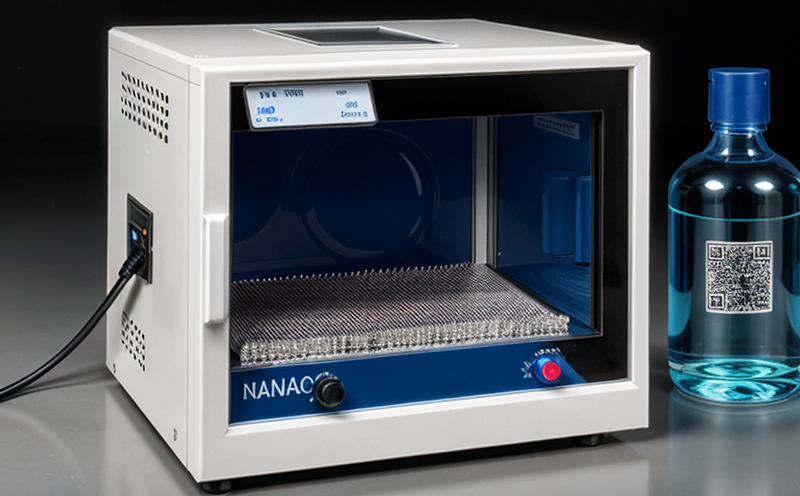CFR 21 Nanomaterial Testing in Food and Drug Applications
The CFR Title 21, Part 170, Subpart B outlines regulations for the use of nanomaterials in food products. This regulation is a critical aspect of ensuring that consumers are not exposed to harmful substances through their diet. The testing and compliance with these standards are essential duties performed by laboratories specializing in nanotechnology. Our laboratory offers comprehensive services to ensure your products adhere to these stringent requirements.
The process involves several steps, including the identification of potential hazards associated with nano-sized particles, assessing the migration rates from packaging into food products, and evaluating the stability of these materials under various conditions. This testing ensures that any nanomaterials used in food contact surfaces or additives are safe for human consumption.
Our team employs advanced analytical techniques such as Transmission Electron Microscopy (TEM), Dynamic Light Scattering (DLS), and X-ray Diffraction (XRD) to characterize the size, shape, and crystallinity of nanoparticles. Additionally, our scientists use inductively coupled plasma mass spectrometry (ICP-MS) for trace element analysis, ensuring that all components are within acceptable limits according to CFR 21 standards.
We understand that compliance with these regulations is not only about meeting legal requirements but also protecting your brand's reputation. By leveraging our expertise in this field, you can be confident that your products will meet regulatory expectations without compromising safety or quality.
Industry Applications
The application of CFR 21 Nanomaterial Testing extends beyond just food products; it encompasses a wide range of industries where nanotechnology plays a role. Here are some key areas:
- Packaging materials for food and pharmaceuticals
- Nanocomposites used in medical devices
- Consumer goods containing nano-sized ingredients
In each case, the goal is to ensure that these nanomaterials do not pose risks when they come into contact with humans. By adhering to CFR 21 requirements, manufacturers can maintain high standards of quality and safety across all sectors.
Why Choose This Test
- Compliance with regulatory standards ensures product safety.
- Avoids potential legal issues associated with non-compliance.
- Enhances consumer trust and brand reputation.
- Reduces the risk of recalls due to harmful substances entering the market.
By choosing our service, you gain access to state-of-the-art equipment and experienced professionals who understand both the technical aspects of nanotechnology as well as its implications for regulatory compliance. Our commitment to accuracy and precision guarantees that your products will meet all necessary criteria.
Use Cases and Application Examples
| Use Case | Description |
|---|---|
| Packaging Materials | Evaluating the migration rates of nanomaterials from packaging into food products. |
| Nanocomposites in Medical Devices | Assessing the safety and effectiveness of nanocomposites used in medical devices. |
| Consumer Goods | Testing nano-sized ingredients for consumer goods to ensure they are safe for use. |
These examples illustrate how our testing services can help various industries comply with CFR 21 requirements. Our laboratory provides detailed reports and recommendations based on thorough analysis, ensuring that your products meet all necessary standards.





